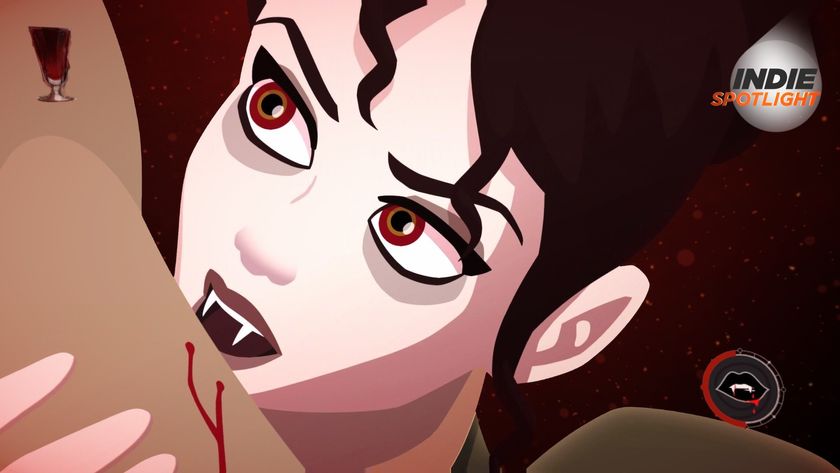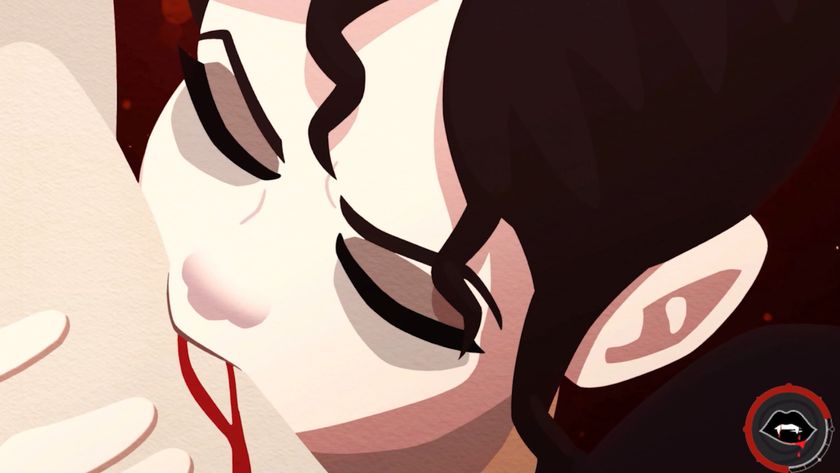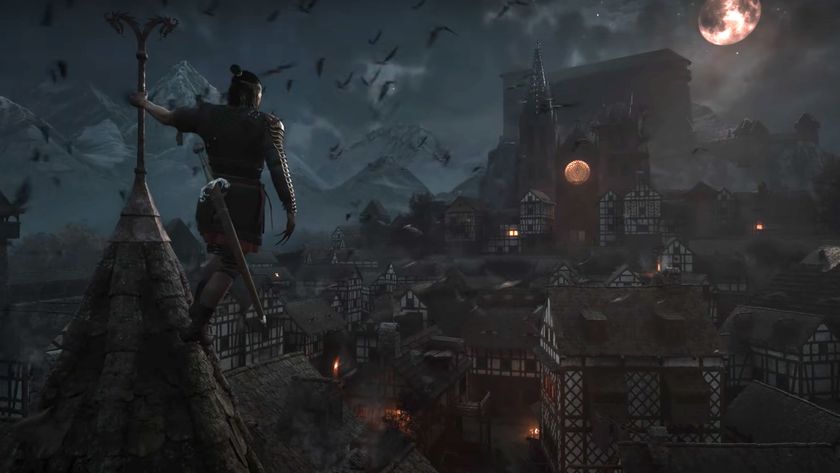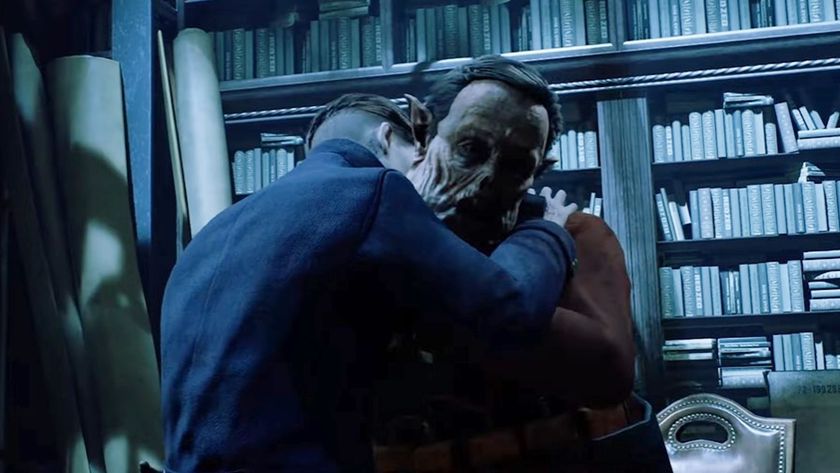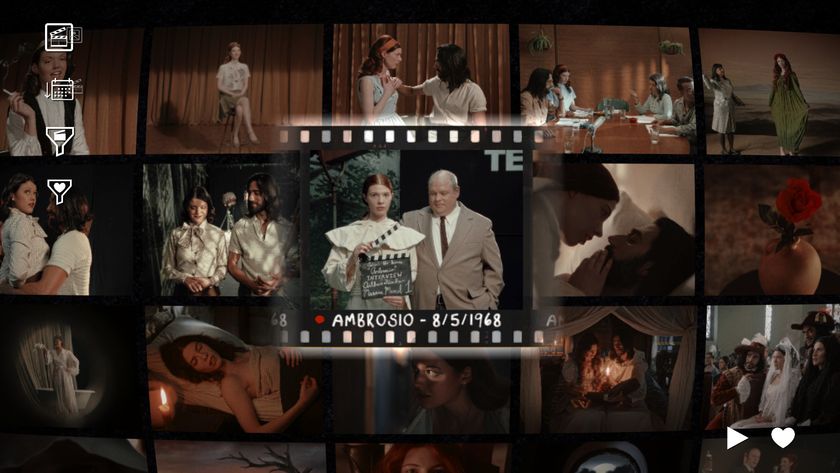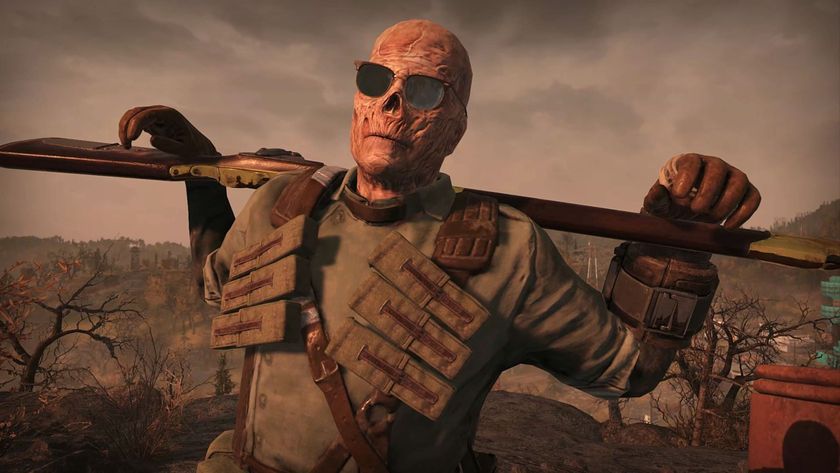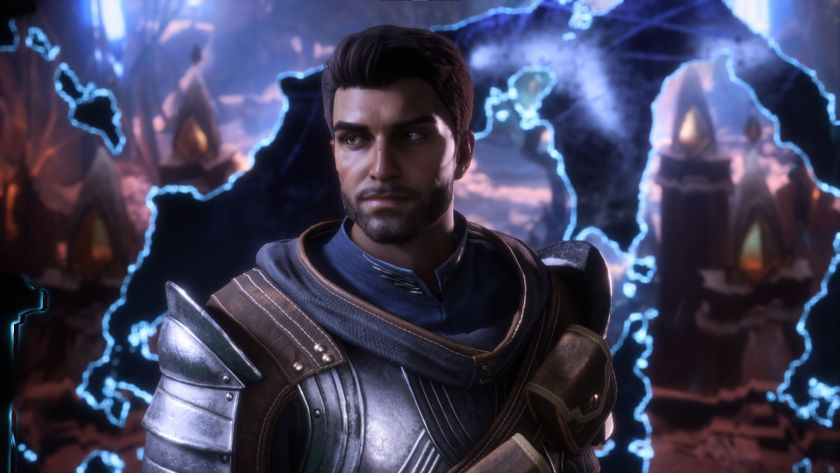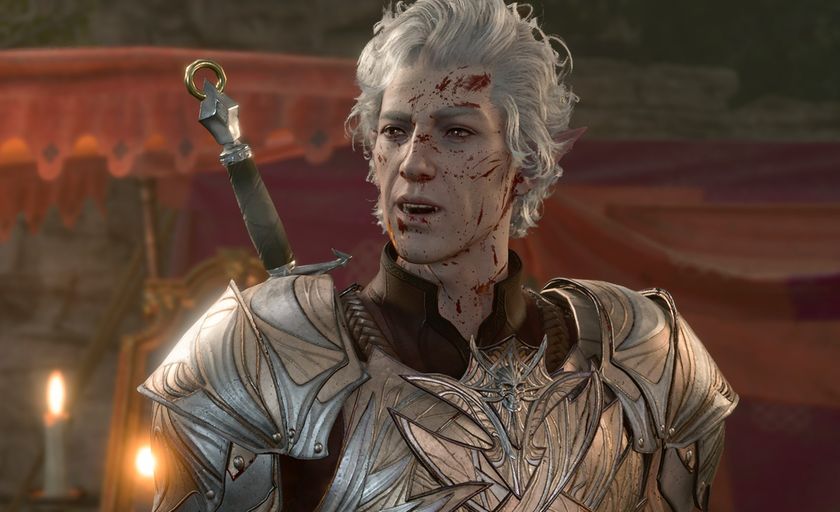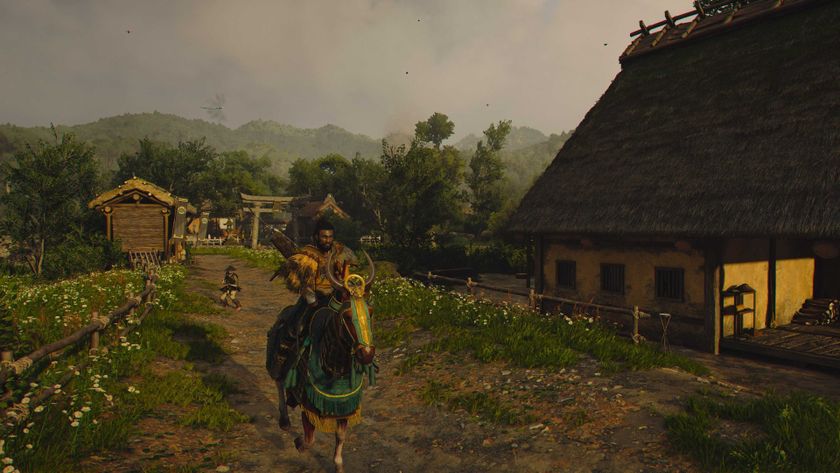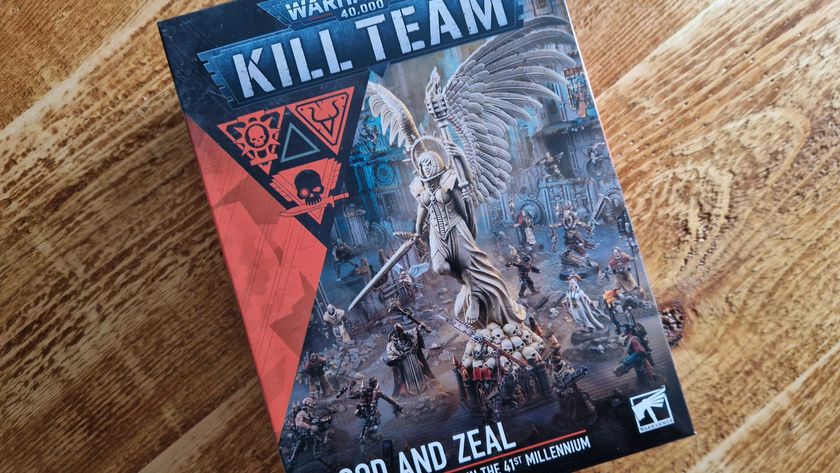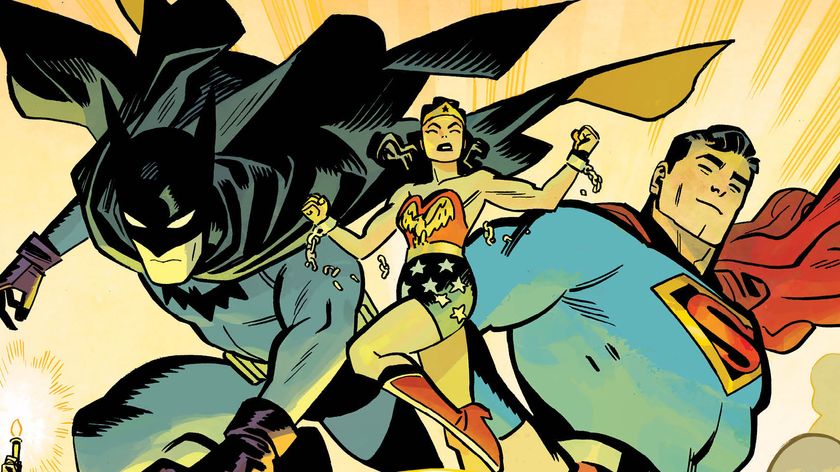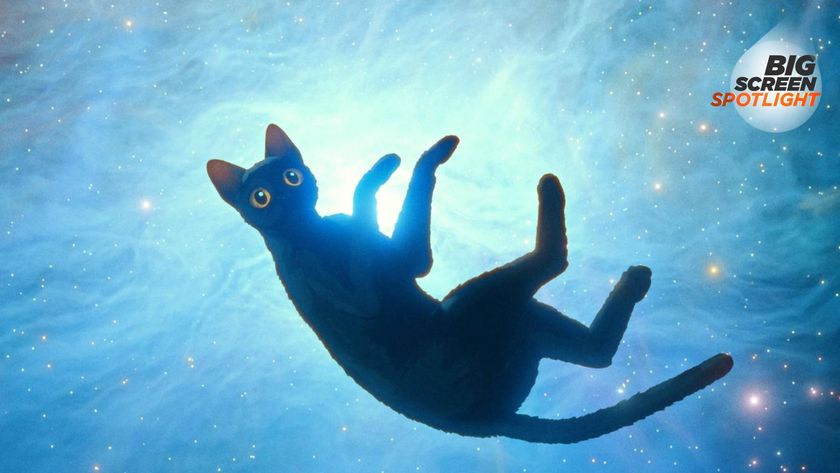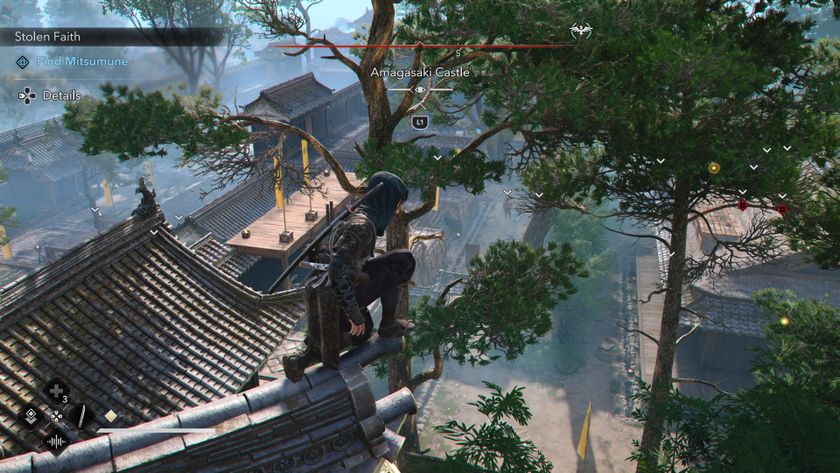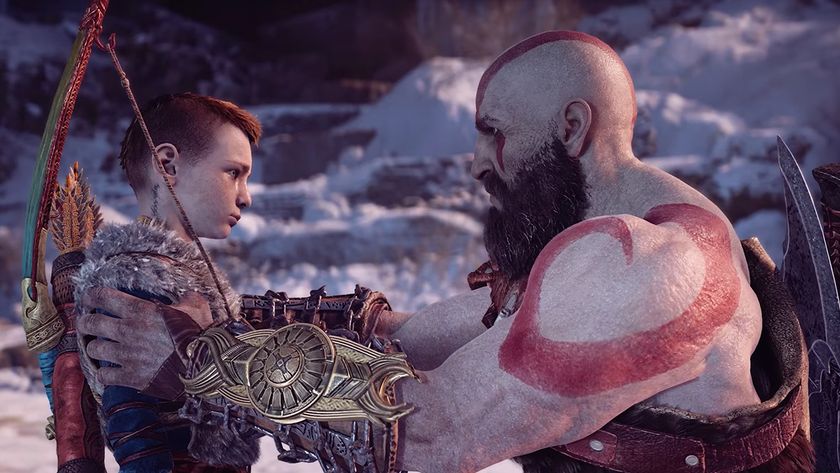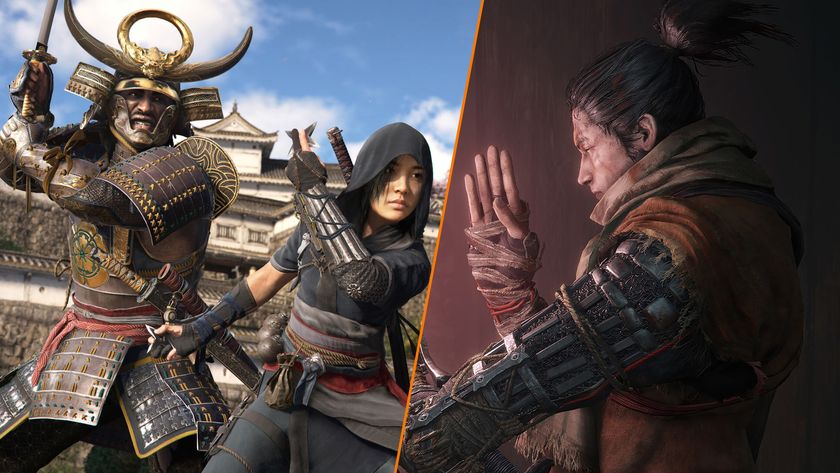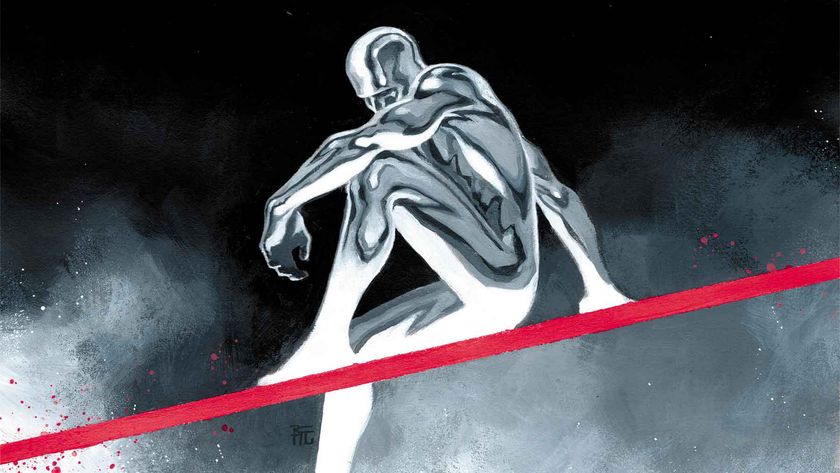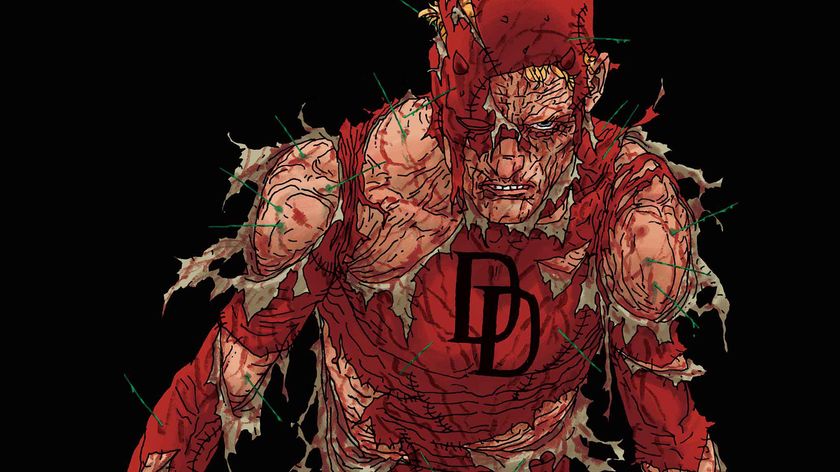This vampire RPG set in 19th century Eastern Europe has sunk its teeth into me and won't let go
Preview | Cabernet lets you embrace the shadows or cling to humanity as a fledgling vampire
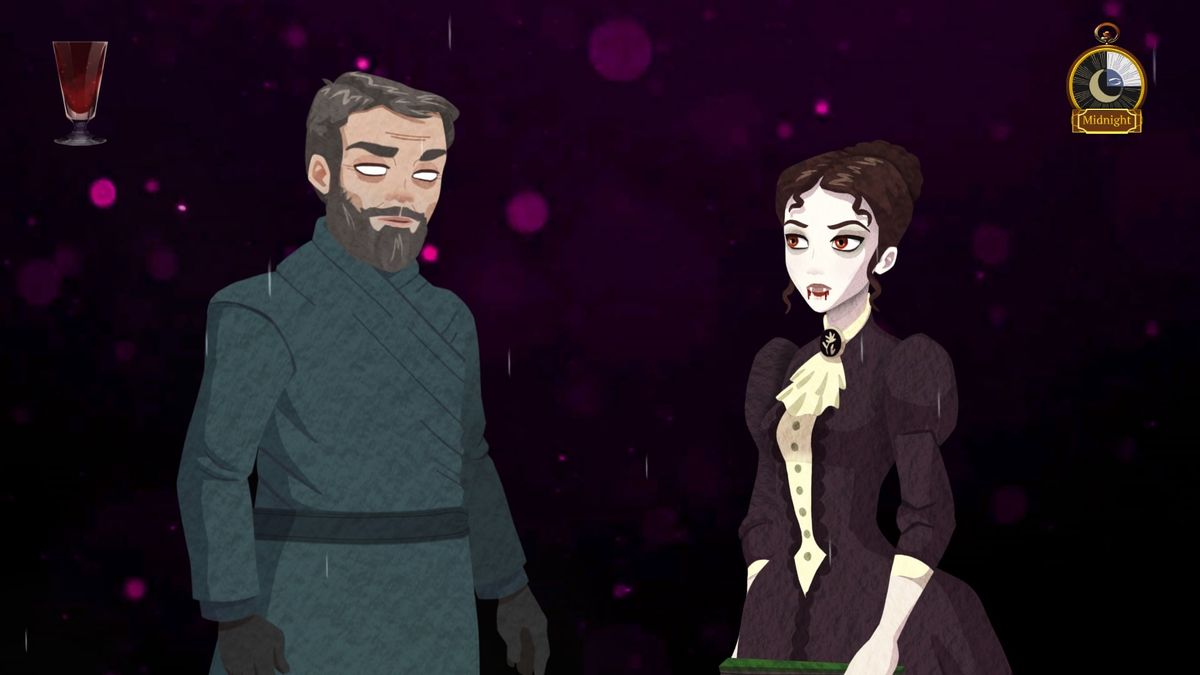
There are far too few vampire RPGs out there, and Cabernet is a happy remedy for that. Indie developer Party For Introverts sets its supernatural tale in the beautifully atmospheric world of late-1800s Eastern Europe, where a young woman awakens with a still pulse and a gnawing thirst.
Told through stunning 2D animations, my hands-on experience of the point-and-click narrative adventure put me in Liza's shoes on her first day of being a newborn vampire. From transforming into a bat to navigating the stringencies of high society networking, the hour-long Cabernet demo offers a delicious taste of the game's unique morality system, its vampire mechanics, and hints at the sensitive themes underpinning Liza's journey through the afterlife.
Just a sip
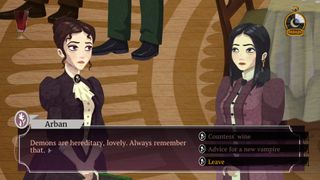
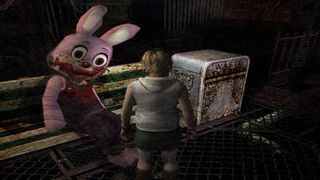
For something with a little more bite, check out the best horror games where fear is king.
The thirst for human blood has proven a powerful metaphor in pop culture. The fear of contagion is a major theme in Dracula, while sexual and predatory threats are common metaphors in the likes of Buffy the Vampire Slayer. In Cabernet, however, Party for Introverts takes a step in another direction: vampires as symbolic of alcoholism.
"It seems like a perfect parallel," co-founder Arseniy Klishin says. "I'm surprised that it's not being used more frequently in vampire lore. Vampires rely on drinking to exist. They hurt people by doing so, and there's so much in there that I felt like that's when it actually clicked and we want to make a game. There was the vampire subject, but then there is how we can relate to it personally."
This level of personal and emotional investment is embedded at the heart of Party for Introverts' games, and it's palpable from the Cabernet demo alone. It starts as Liza awakens in a dimly-lit room, having no recollection of what happened to get her there. Weak, feeble, and hungry, she makes her way to the ballroom upstairs, finding it filled with fashionable and mysterious partygoers. The lady of the house, Countess Orlova, soon urges Liza to drink from a goblet brimming with a strange red liquid. At first, she is cautious – but as she breathes in the aroma, its warmth and sweetness calls to something primal deep inside her.

Liza drinks deeply, and yes, it's later confirmed that it was none other than human blood. Nicknamed "cabernet" by vampires so as not to alert any humans, the ties between bloodlust, alcohol addiction, and the secretive destruction shared by the two are made obvious. "Demons are hereditary, lovely," one vampire cautions. "Remember that."
Playing the demo, I was only given the chance to drink once. Liza is offered a drink a second time, not from a chalice but from the throat of the manor's caretaker. Being newly turned and still possessing her humanity, she flinches from the opportunity. Liza's blood meter is already full at this point, but I felt a little disappointed when she turned down the offer.
Sign up to the 12DOVE Newsletter
Weekly digests, tales from the communities you love, and more
Much like with alcohol in real life, vampires in Cabernet can get intoxicated by blood giving them a temporary boost to skills and vigor. The demo only took me through Chapter One, so it wasn't long enough for the meter to dip lower as you approach needing to feed again, but studio co-founder Laura Gray tells me that this is where the RPG elements will truly shine later on.
"How you choose to replenish [your blood meter] is, to an extent, up to you," Gray says. "You just can't go crazy and eat everyone, because a lot, thematically, is about the structures of society that are in place. So there are rules of how one would feed: you have to enchant someone, and you have to befriend them before you can enchant them because then they'll be more susceptible."
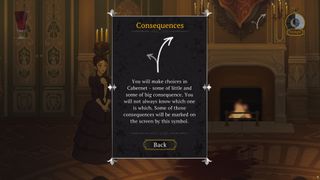
I saw this for myself in the demo, when fellow vampire Hassar enchants the caretaker to drink from him. "But by befriending them, you'll create a relationship, which could potentially influence you on whether or not you wish to drain them dry."
Around the midpoint, a character slips Liza a vial of cabernet to save for later. I guess this is just one way I can choose to feed in the game, and it's a matter of self-control and discipline that will eventually dictate how I do so. "It comes down to the choices you make," Gray went on. "Depending on how you play, never have to overindulge. You never have to kill someone, you never have to hurt anything. But there is a kind of a thoughtful process of how you, as the player, choose to navigate the story, and those choices have consequences."
Choice, morality, and the RPG
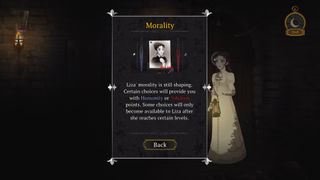
You just can't go crazy and eat everyone, because a lot, thematically, is about the structures of society that are in place.
Laura Gray
Vampirism is the framework Cabernet uses to tell a story about alcoholism, but the format of an RPG itself is what draws the whole thing together. To do so, Klishin and Gray make use of one of my favorite RPG mechanics.
"The philosophical, the literary, and the emotional component is what actually drives us to make the game besides just our general passion. And the morality system is a huge, huge part of that," says Klishin. "It's not good karma and bad karma. It's nihilism and humanity. And both of them may be valid."
Different from how morality works in games like Fable, your nihilism level doesn't go down when you make a humane choice. Instead, Cabernet's morality system consists of two meters that can be built up, but cannot go down. "That means that you retain things that you do, the fact that you do a "good" thing doesn't cancel out the fact that you did a bad one. And doing a bad thing doesn't cancel out the good. So that unlocks different branches as you earn [humanity or nihilism] points to unlock different stories."
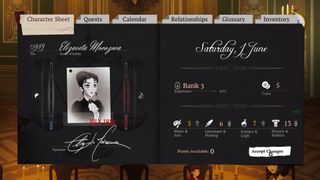
I experienced many of these moments myself; you can be kind to the human party guest, or be honest and cruel. You can whisper something helpful to the enchanted caretaker, or encourage him to steal from the Countess. The fact that your good deeds don't balance out the bad is something I really enjoy so far, extending the idea of an infallible vampiric memory that causes Liza's decisions to stay with her forever.
The Cabernet demo is a short and sweet aperitif, sharpening my fangs just in time for the Steam Visual Novel Fest. Small details like the careful selection of library books weren't lost on me, and neither was the nascent spark of romance between Liza and one or two NPCs. Cabernet looks set to quench the barren earth when it comes to the dearth of good vampire games out there, and just like Liza eyeing up another chalice of blood, I'm hungry for more already.
Check out the best visual novels to immerse yourself in a stunning new story.

Jasmine is a staff writer at 12DOVE. Raised in Hong Kong and having graduated with an English Literature degree from Queen Mary, University of London in 2017, her passion for entertainment writing has taken her from reviewing underground concerts to blogging about the intersection between horror movies and browser games. Having made the career jump from TV broadcast operations to video games journalism during the pandemic, she cut her teeth as a freelance writer with TheGamer, Gamezo, and Tech Radar Gaming before accepting a full-time role here at GamesRadar. Whether Jasmine is researching the latest in gaming litigation for a news piece, writing how-to guides for The Sims 4, or extolling the necessity of a Resident Evil: CODE Veronica remake, you'll probably find her listening to metalcore at the same time.
